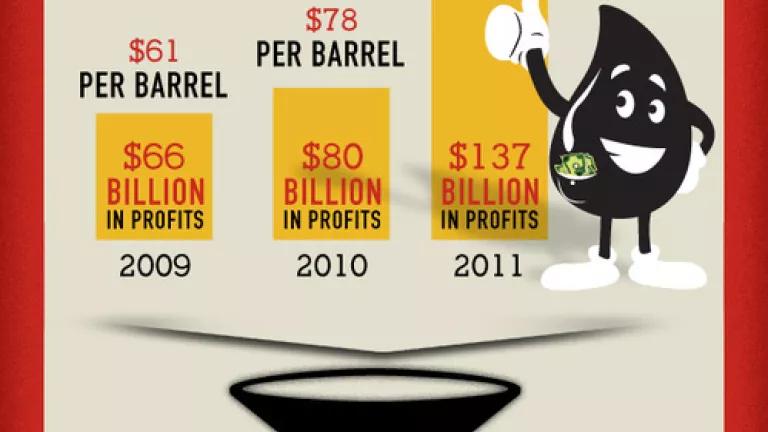
Nine out of ten travelers--about 30 million people--will be hitting the road this Memorial Day weekend, according to the American Automobile Association (AAA). In the organization's annual survey of drivers, nearly half of Memorial Day travelers said that concerns about gas prices were forcing them to make their trips shorter and less expensive.
What ever happened to the freedom of the road? Back in the day, automobiles gave us a sense of liberation. But that feeling has been hard to come by lately, especially if you're stuck in holiday traffic, paying through the nose for gas that's being idled away. And it feels even worse when you stop to think that a quarter of your gas money directly pads the profits of Big Oil, an industry that has a monopoly on our transportation system.
The Obama administration has started to ease the pain of gas gridlock with fuel efficiency standards for new cars, which would save the average family about $550 dollars during the summer months--a tidy little sum for a holiday splurge. Perhaps that's why consumers are ranking fuel efficiency as their number one priority when buying a new car, according to a recent survey by Consumer Reports.
“These results make it clear that high fuel prices are continuing to impact driver behavior and influencing future purchase considerations,” said Jeff Bartlett, Consumer Reports deputy auto editor.
High fuel prices are a concern not just for ordinary travelers but for the U.S. military, too. The Department of Defense has made fuel efficiency and clean energy a priority, in an effort to keep troops safe and costs down. (The DoD spent $15 billion on energy last year.) Their agenda, as Navy Secretary Ray Mabus says, is "to be better war fighters." Fuel convoys are easy targets--in Iraq and Afghanistan, 1,300 Americans have been killed delivering fuel.
Yet Republicans in the Senate, in closed-door budget discussions, are trying to quash the military's efforts to invest in alternative fuels, renewable energy and efficiency measures, ignoring the fact that these endeavors save resources and save soldier's lives.
Meanwhile, in the House, Republican leaders continue to turn a blind eye to our pain at the pump, stymying efforts to pass a transportation bill that would help everyone save gas by improving roads, easing traffic, and making public transit better. The bill passed the Senate with bipartisan support, but in the House, it's being weighed down with controversial measures, like approval of the Keystone XL tar sands pipeline--which, ironically, would end up raising gas prices in the Midwest.
This holiday weekend, 30 million drivers are paying the oil industry for the privilege of sitting in traffic, burning gas that isn't getting them anywhere, and putting our troops in harm's way. But we can bring back the freedom of the road: We do it by breaking free from the monopoly of Big Oil. Getting more efficient cars on the road is part of the solution. We also need to build a supply of sustainable biofuels, which the military is already exploring, and improve public transportation so more people can get more places, quickly and comfortably. If you're ready for real solutions that will break our dangerous dependence on oil, tell your representative to pass a transportation bill that doesn't cater to the oil industry.